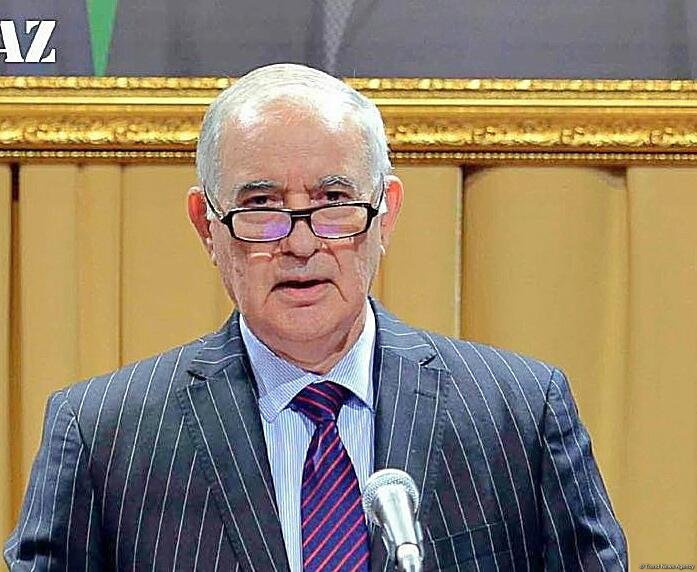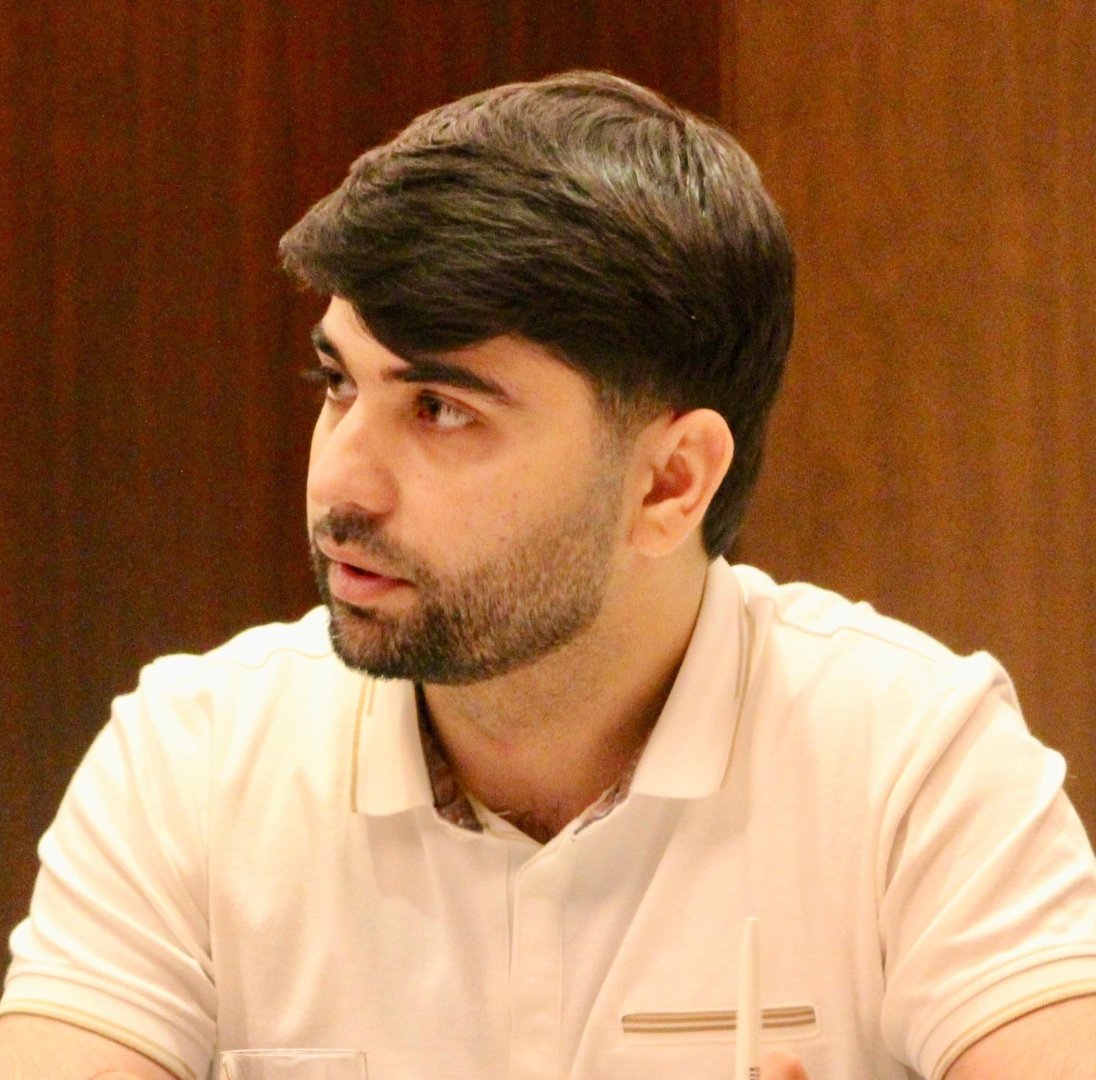BAKU, Azerbaijan, August 11. Azerbaijan also won at the diplomatic table under the leadership of President of Azerbaijan Ilham Aliyev, political analyst Azer Garayev told Trend.
According to him, a new chapter opened on the political map of the South Caucasus today.
"The trilateral meeting held on August 8, 2025, in Washington was a landmark event that shifted the balance not only between two countries but across the entire region. The meeting, attended by President of Azerbaijan Ilham Aliyev, Armenia’s Prime Minister Nikol Pashinyan, and US President Donald Trump, held significant diplomatic and political importance. The outcome—a Joint Statement signed between Azerbaijan and Armenia and the initialing of a peace agreement—was the logical conclusion of years of tension and the official confirmation of Azerbaijan’s strategic victory. The agreements reached in Washington demonstrated that under President Aliyev’s leadership, Azerbaijan won not only on the battlefield but also at the diplomatic table.
President Ilham Aliyev achieved this success through years of consistent and principled policy. Without retreating an inch from national interests, he strengthened Azerbaijan’s position internationally and became a key player in regional processes. The Washington meeting was the pinnacle of this process—where the foundation of peace was laid on terms dictated by the victorious side. Azerbaijan consistently defended its interests at every stage and ultimately ensured all its conditions were met,” he added.
According to Garayev, Azerbaijan’s recent history can be viewed as both a military and political lesson.
“The brilliant victory in the 2020 Second Karabakh War liberated occupied lands and forced Armenia to sign a surrender act, but this was not the final goal for President Aliyev. He understood that true victory must also be achieved at the diplomatic table. After the war, Azerbaijan took steady steps to consolidate its positions. The 'Revenge' operation and the 24-hour anti-terror measures in 2023 fully restored the country’s sovereignty. This was not just a military success but a strategic blow, forcing Armenia to accept realities in negotiations.
Throughout all phases, President Aliyev maintained a consistent principled line. Azerbaijan will never compromise its national interests, and peace is possible only after full recognition of the country’s sovereignty and territorial integrity. The Joint Statement signed in Washington was the final confirmation of this principled stance—the conditions of the victorious state were on the table, and the other side’s signature was under that document,” he added.
Garayev noted that as the victorious party, President Aliyev also authored the peace agenda.
“At the beginning of 2022, Azerbaijan presented Armenia with the 'five basic principles' forming the foundation of the peace treaty. Azerbaijan’s peace concept is a profound and strategic vision aimed not only at normalizing relations between the two countries but also at ensuring lasting stability in the region. This vision is based on fundamental values and mutual understanding that serve the root resolution of the conflict.
The core idea is that both sides must mutually recognize sovereignty, territorial integrity, and the inviolability of borders. This is a serious step to prevent any future territorial claims or threats. Use of force or threats between the two states must be completely excluded, and mutual trust and a peaceful environment must be established. Additionally, full delimitation and demarcation of borders, establishment of diplomatic relations, and opening of transport and economic ties are necessary. These steps serve the region’s economic development and the expansion of people-to-people ties.
However, Armenia long avoided sincere steps, insisting on including a clause on the status of Armenians living in Karabakh in the treaty. Azerbaijan firmly stated this is an internal matter and cannot be part of an interstate document. Meanwhile, the Biden administration, French President Emmanuel Macron, and other forces tried to pressure Azerbaijan and spread accusations to push their own agendas. But these attempts failed thanks to President Aliyev’s consistent policy,” he explained.
The analyst emphasized that the Joint Statement signed in Washington in August 2025 was not just a diplomatic document for Azerbaijan but also an official recognition of the new political reality in the region. This document was the international acceptance of Azerbaijan’s long-standing conditions and marked a turning point toward a peaceful resolution of the prolonged conflict.
“With the Washington Statement, Armenia accepted several key demands and was forced to retract its previous stance. The document included Azerbaijan’s core principles, such as a joint call to end the Minsk Group’s activities, removal of territorial claims from Armenia’s Constitution, and establishment of unobstructed transport links between Azerbaijan’s main territory and the Nakhchivan Autonomous Republic. This was also a strategic initiative supported by the US. The opening of the Zangezur corridor, guaranteed by US President Donald Trump, marks a new phase in the region’s economic and political development. Through this document, Azerbaijan solidified its position within international law, while Armenia accepted to act in accordance with peace and cooperation principles going forward. The Washington Statement also demonstrated to the world that military conflicts in the region are now history, and the parties are focused on the future,” he said.
He added that the initialing of the peace treaty text during the Washington meeting was a significant historic moment.
“Although initialing is technically different from full signing, it is regarded as an official and binding document showing that the parties have agreed on the main principles and demands. This step is vital for restoring mutual trust and laying the foundation for future cooperation after years of conflict. By initialing, Azerbaijan and Armenia demonstrated their readiness to reduce post-war tensions and take practical steps toward peace and stability.
The initialing phase is also a necessary procedure for the final peace treaty signing, which is expected to be completed after a constitutional referendum in Armenia in 2026. This ensures independent and democratic procedures for the treaty’s full legal enactment. Thus, initialing plays a key political and legal role in strengthening and sustaining the peace process between Azerbaijan and Armenia in the coming period,” he said.
Additionally, Garayev pointed out that the Joint Statement signed in Washington strengthened Azerbaijan’s strategic interests and formalized the post-war status quo.
“The international community, including the US, effectively accepted the new political reality in the region. President Aliyev’s visit to the US and the signed documents were not only diplomatic successes but also a serious political blow to Armenia’s backers—from the Macron administration to the European Parliament and Armenian lobby groups. President Aliyev showed that military victory can be the foundation for stable and favorable peace.
His policy is a synthesis of determination and strategic vision in defending national interests, turning battlefield superiority into lasting success at the negotiating table. The Washington meeting confirmed that Azerbaijan, having strengthened its positions from bloody battles to the negotiation table, opened a new chapter in regional history—where peace is built on the victor’s terms,” Garayev concluded.
Stay up-to-date with more news on Trend News Agency's WhatsApp channel







